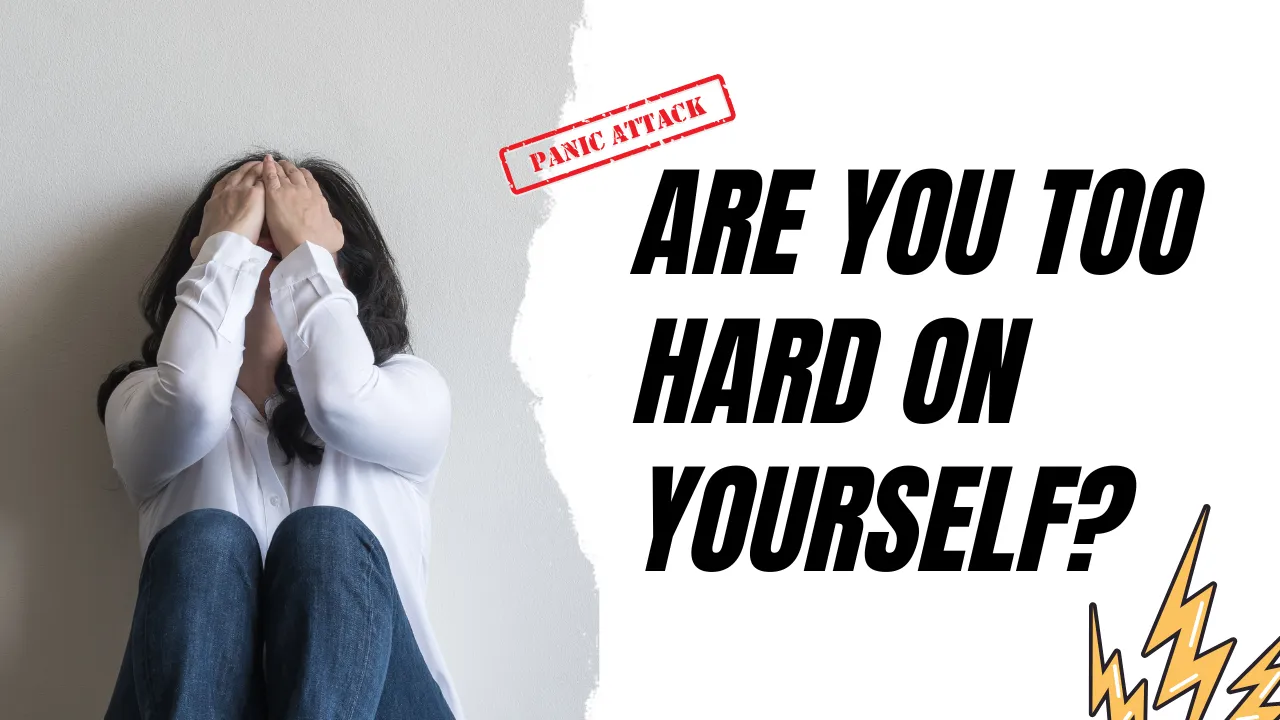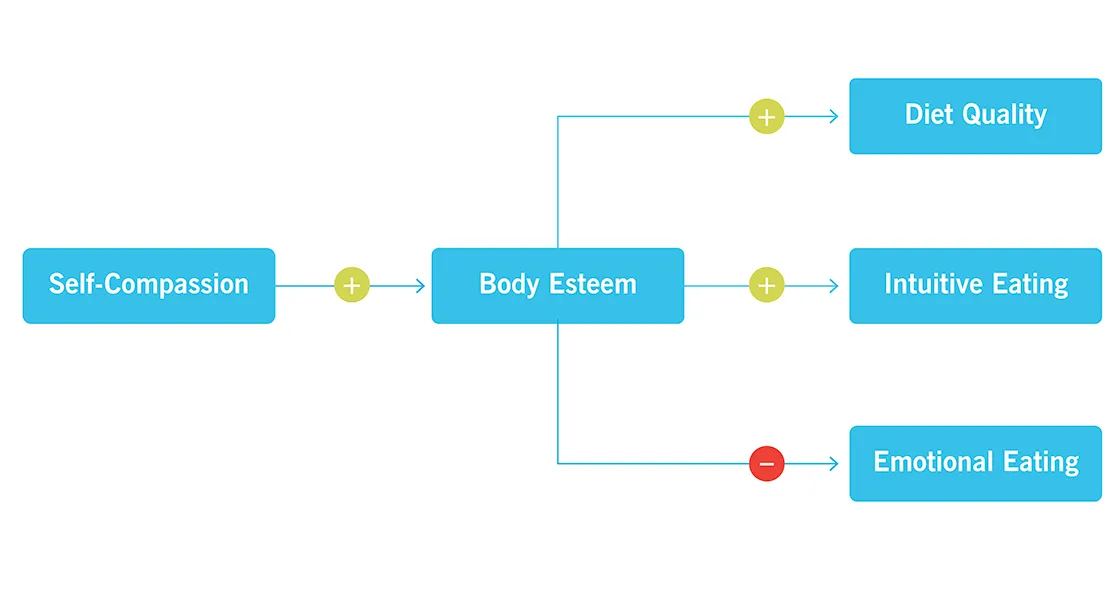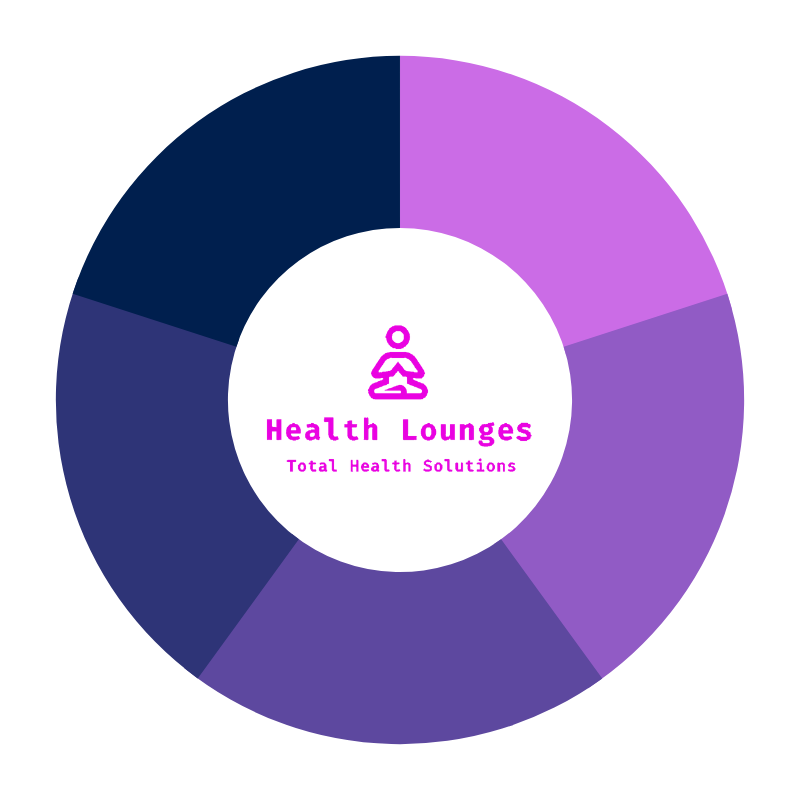Are you too hard on yourself?

We have two questions for you today. And depending on your answers, they could help you identify a way to lower your stress levels.
Let's get started.
Question #1: Do you expect a lot from yourself?
(We'll guess most of you answer "yes" to this.)
Question 2: Do you beat yourself up whenever you fall short? For instance, do you find yourself frequently saying things like:
- "How come I keep doing this?"
- "Why can't I ever follow through?
- "I screw up everything!"
A "yes" on this question suggests you might not practice a lot of self-compassion.
And while that's normal, it's not particularly good for you.
Being overly self-critical adds stress to your life.
Why? Because it can cause you to contemplate every mistake and shortfall, making them feel more significant than they are.
Of course, there's often an internal conflict here.
You might think being "hard on yourself" drives you to work harder and motivates you to strive for excellence.
So it's hard to let go.
But here are a couple of more questions to ponder...
If you weren't so hard on yourself, would you become lazy and less driven to succeed?
Would it fundamentally change who you are?
Neuroscience and psychology research shows that people who practice self-compassion get more done and can sustain their work, health, and relationships better than those who don't.
Compared to self-criticizers, more self-compassionate people:
► perform better and are less likely to "choke" under pressure
► can bounce back faster from setbacks
► feel less depressed and anxious
► have better relationships
► are more emotionally intelligent and less egocentric
► are more satisfied with life
All those benefits—which aid your emotional, social, and existential health—also positively affect your physical health. They make it easier for you to eat well, stay active, and get a good night's sleep.
Case in point…
A recent University of Quebec study on mothers of young children shows how practicing self-compassion can benefit eating behaviors.
When moms scored higher on self-compassion:
► Their diets were higher quality.
►They were more likely to be intuitive eaters.
► They were less likely to experience emotional eating.
These women also had higher levels of body esteem—which the researchers propose is the link between self-compassion and healthier eating behaviors.
When you map it out, it looks like this:

Self-compassion, it seems, is a catalyst for boosting body esteem and thus making healthier behaviors more likely.
The big takeaway…
Practicing self-compassion can help you better regulate emotions, manage stress, and have a greater capacity for doing what you want—such as eating better, moving more, or boosting your work productivity.
But self-compassion isn't about taking the easy way out or letting yourself "off the hook." It's about helping prevent negative experiences from dragging you down and using them to learn and grow.
In other words, self-compassion is about:
► giving yourself a break—not a perpetual "get out of jail free" card
► choosing to be genuinely kind to yourself—not simply avoiding being "mean."
► being honest and seeing the big picture—not ignoring real problems
So what does self-compassion look like?
There are three main elements:
1. Mindfulness: This is when you're aware of what you're doing, thinking, feeling, and experiencing, but you're not judging yourself for it.
2. Common humanity: Acknowledging that you're not alone—everyone goes through what you're dealing with at some point.
3. Self-kindness: Being generous and decent to yourself.
Now let's apply this to emotional eating.
Many people beat themselves up during and after going out on a bag of Potato Chips.
In that situation, practicing self-compassion might sound something like:
► Mindfulness: "Oh, yep. I'm eating my feelings right now. That doesn't feel super great, but I don't feel like I can stop."
► Common humanity: "This is a pretty understandable response to what I'm going through. Many people deal with emotional eating when they're stressed, too."
► Self-kindness: "Alright, shake it off! You ate some chips; it happens; that doesn't say anything about who you are as a person."
A key distinction here is that self-compassion isn't an excuse for stress eating; its purpose is to help remove some of the guilt you might feel about it.
That's important since that guilt can lead to more overeating.
Of course, that's just one example.
Self-compassion can benefit you in just about any area of life. If you want to go even deeper—to improve your physical, mental, and emotional health—consider our Recovery, Sleep & Stress Management Program (The next session opens soon.)
So give it a try. Even if it feels squishy, it might just be what you need.
Until next time,
Dt.Mohit Mittal
